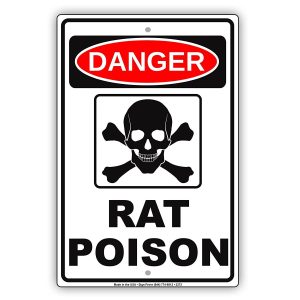By MADISON MEDEIROS
Underweight, dehydrated, bruised on both the chest and abdomen; a snowy owl found on a jetty at Wellfleet Harbor fell ill and died earlier this year, a victim of poisoning—but it’s not what you think.
Assessed by staff from Wild Care, a wildlife rescue and rehabilitation center in Eastham, the sick bird’s emaciated state, bruising, and failure of the blood to clot showed an animal with repeated exposure to rodenticides.
“Secondary rodenticides are slowly poisoning our wildlife,” said Stephanie Ellis, executive director of Wild Care.
Rodenticides are pesticides that kill rodents. The poison accumulates in the animal’s bloodstream over time, depending on levels of exposure. The anticoagulants in these products interfere with the blood’s ability to clot, causing massive bleeding, liver failure, anemia, and ultimately death. The same symptoms will occur when predators consume the poisoned rodents.
“It is so sad that this majestic creature, which traveled all the way from its Arctic tundra to Cape Cod to spend the winter here, was slowly poisoned in its very own environment,” Ms. Ellis said. “Rodenticides are never the answer.”
The Environmental Protection Agency has cracked down on the use of rodenticides, but has not eliminated the harmful chemical completely.
The EPA banned the sale of mouse and rat poison sold by Reckitt Benckiser after failing to adopt the agencies safety standards for rodenticides. The regulations were aimed to prevent children from suffering from accidental exposure to the bait. Despite the ban of the product being sold on store shelves, the poison is still available for nonresidential use, in locations such as on a farm.
 The EPA also tightened its grip on the use of second-generation anticoagulant rodenticides, which kill small rodents by causing uncontrollable bleeding. Products with substances like brodifacoum, bromadiolone, difethialone, and difenacoum are no longer sold to residential consumers due to its toxicity to wildlife.
The EPA also tightened its grip on the use of second-generation anticoagulant rodenticides, which kill small rodents by causing uncontrollable bleeding. Products with substances like brodifacoum, bromadiolone, difethialone, and difenacoum are no longer sold to residential consumers due to its toxicity to wildlife.
But the chemicals still pose a threat to wildlife, as they are still available for purchase in bulk at agricultural supply stores and used by professionally licensed applicators.
When people use anticoagulant-rodenticides, such as d-Con and other brands commonly found at household stores, mice and rats become poisoned and debilitated, and hence easy prey for raptors and mammals.
The raptors and mammals then inadvertently become poisoned and sick after eating rodents that have been affected in the same manner.
“I wish that everyone who used these products could see what rodenticide poisoning looks like. These animals come in to us depressed and disoriented. Some can barely hold up their heads. They are anemic and often have extensive bleeding and bruising,” Ms. Ellis said. “It is a painful sight to see.”
Ms. Ellis advises residents to research humane methods of deterring and controlling rodent populations around the home.
“Exclusion is the ultimate answer. It takes more time, but is the best long-term solution for controlling rodents,” Ms. Ellis said.
The exclusion method involves trapping and sealing up points of entry where rodents can get into the house.
“There are options where people shouldn’t have to use those [products] that could hurt wildlife or even their pets,” said Larry Dapsis, entomologist at Cape Cod Cooperative Extension. “I recommend the low impact options first—they will work.”
Mr. Dapsis recommends that clients ask pest control companies educated questions about its products, and for the lowest impact approaches. He also urges consumers to search for bait products that are safer and show less effects.
Mr. Dapsis explained that there are products on the market that are harmless to humans and the environment.
He recommends residents try products such as MouseX, a naturally derived product that is safe and effective, and used for ridding one’s home of small rodents. It is biodegradable and shows no signs of environmental impact.
“What it does is it interferes with the lining of the mouse’s intestine. They lose their urge to eat or drink water so they basically die of dehydration,” said Mr. Dapsis.
Most importantly, the product is safe for people, pets and wildlife and has proven to be effective when dealing with rodent control.
“There are alternatives where I don’t see a need to have to use those products at all,” Mr. Dapsis said. “[Rodenticides are] a chemical not to be messed with.”

